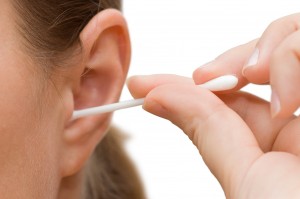Lose Weight > Common Sense To Lose Weight > Common Sense Article > Help On Availing Weight Loss Plans
Help On Availing Weight Loss Plans
1. Consult your physician: being overweight is a health condition. You need to consult your physician before taking up any dietary changes or exercises to alter your weight. If you some kind of illness, such as diabetes, you should be on a weight loss plan made especially for your condition. Remember, when dealing with the human body, there's no such thing as a one size fits all.
2. No drastic cuts: weight loss plans that put you to eating a carrot stick for the whole day, causing you to give a 3000 calorie diet to rabbit food, is not going to make you healthy. Drastic cuts in the diet put the body in a starvation stage, where it begins to store fat rather than consume it. Also the body, after it has stored all the fat is can, begins to eat away at itself. And it doesn't eat the fat first, as many would have you believe. The first parts of the body to go are the proteins-based ones, meaning your muscle tissue. Considering that you're already overweight, your body has muscle tissue in less proportion to the total body mass than a healthy person. Loosing further muscle mass with not improve your health in any way. Muscle tissue actually burns the fat, but only when the metabolism rate is high. And this happens when your body gets nutrition. Sure, you need to cut the calories, but do it gradually. This is why health experts frown on fad 7 day diets, they leave your body dehydrated and under nourished.
3. Dehydration is the enemy: a dehydrated body is an unhealthy one, hands down, no argument about it. When your body doesn't get enough water, it starts storing every drop it can find of it in your body cells. This is called water retention. Water retention not only raises your body weight, it keeps all the toxins inside your body. A healthy supply of water to the body, which means at least 8-10 glasses a day, keeps the homeostasis balanced, it allows you to get the most from your food, the toxins are removed from your blood stream and you feel less hungry. Water is a natural appetite suppressant and should be focused on in any weight loss plan you choose to follow.
4. Exercise: 30 minutes of daily exercise is necessary for healthy and sustainable weight loss.
Related Articles
-
Everyday Activities That Burn Calories
For anyone who is losing weight, burning calories is a number one prio
-
Abdominal Fat Poses Risks To Your Health - You Can Fight It!
Unless someone has been blessed with the
-
11 Reasons Youre Always Hungry
V
-
Skipping Meals Isnt A Good Weight Loss Strategy
Dietitians would all agree that skipping a meal wouldnt be the bright
-
25 Tips For A Smaller Waistline (Without Photoshop)
A flat stomach: It’s not just about looking great
-
A Weight Loss Support: Love Yourself Without Weight Loss
So you want to lose weight? The issue is not can you, for you can. The
- DON'T MISS
- Fucoxanthin Has Scientists Intrigued About This New Fat Burning Ingredient
- The Best Coffee for Weight Loss
- Dieting For Losing Weight
- 15 Reasons Why You Are Not Losing Weight
- Diet Plans For Women Over 50 Who Want To Shed Weight
- Your Dream Body Now, With These Tips
- Exercise Assists Weight Loss Goals
- Information Required To Burn Body Weight
- How I Lost 17 Unwanted Pounds
- Myths About Obesity Like to Control You




